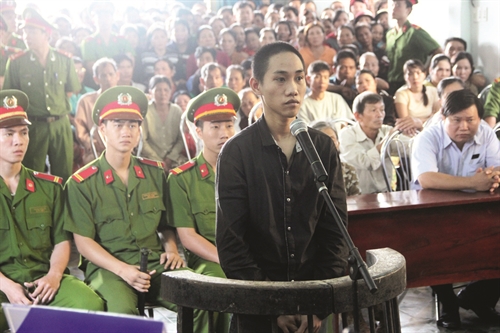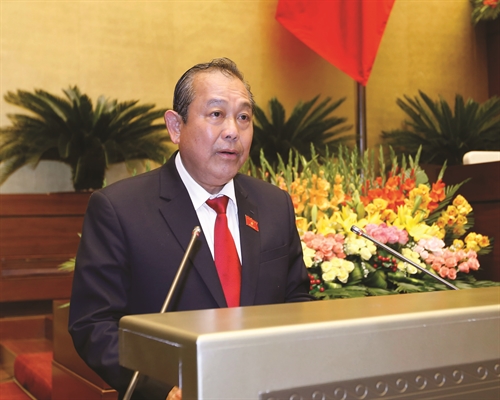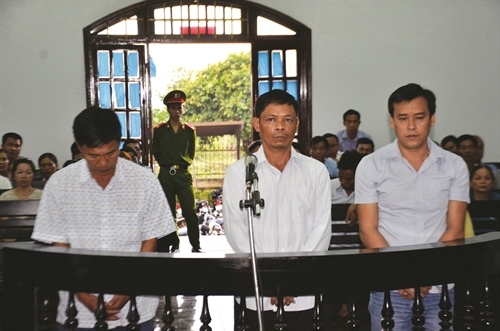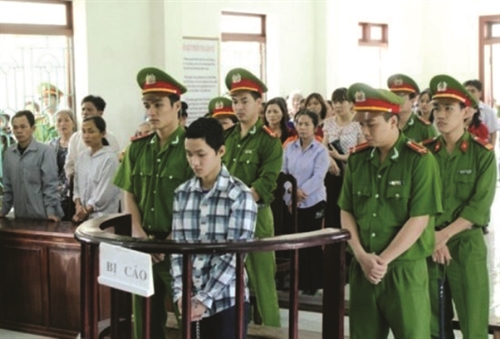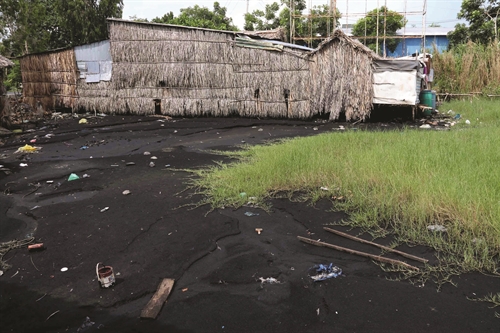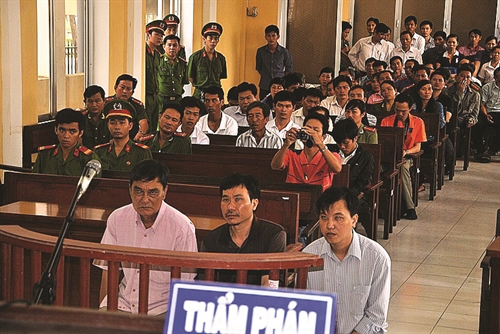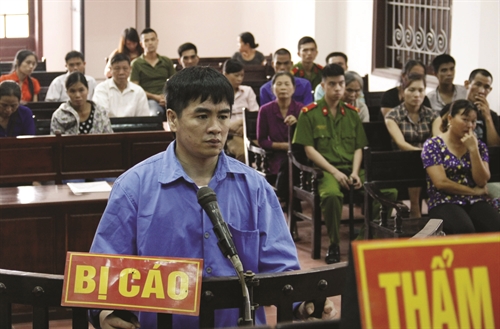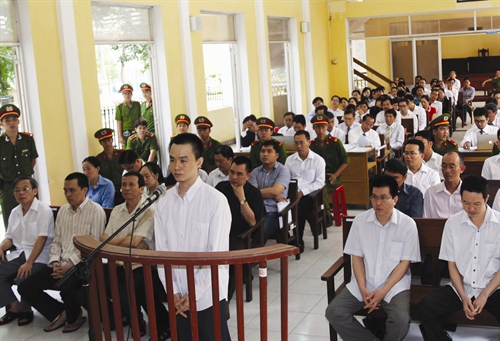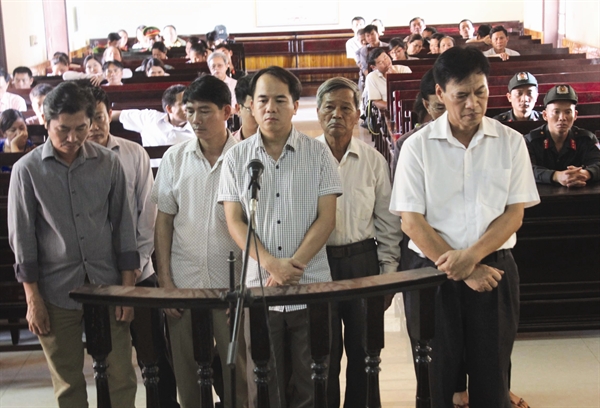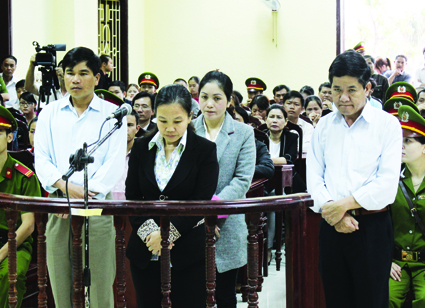Nguyen Tat Thanh
People’s Security Academy
The 2013 Constitution reaffirms the presumption of innocence principle and at the same time provides a general mechanism for implementing the criminal procedure principles, including presumption of innocence. However, to be enforced, this principle should be specified by the criminal procedure law along with a uniform enforcement mechanism.
In the 2015 Criminal Procedure Code (the Code), which will take effect from this July, the presumption of innocence principle is expressed with specific requirements and subjects of application. This is why it can be implemented through its own contents. However, in order to achieve the utmost effect, it should also be implemented through other legal institutions and norms of criminal procedure. We below analyze these two ways of implementing the presumption of innocence principle, taking into consideration new relevant provisions of the Code.
The presumption of innocence principle can be implemented through its own contents
In the Code, for the first time lawmakers officially use the term ‘presumption of innocence’. The definition of this principle has been revised to comply with the 2013 Constitution, in addition to a new provision on presumption in favor of criminally charged persons: “If having insufficient grounds or being unable to clarify grounds for criminally charging or convicting a person according to the order and procedures prescribed by this Code, the bodies and persons competent to conduct proceedings shall conclude that such person is innocent” (Article 13).
The burden of proof is not incorporated in the contents of the principle but is separately prescribed in Article 15 of the Code: “The burden to prove offenses rests with the bodies competent to conduct proceedings. Criminally charged persons have the right but have no burden to prove their innocence.”
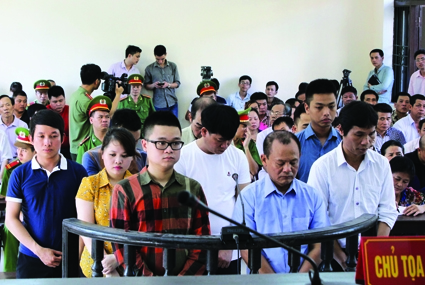 |
| Defendant Nguyen Ngoc Minh (aka Minh Sam) and his accomplices at the hearing for taking property by force and illegally stockpiling military weapons in Tu Son town, Bac Ninh province __Photo: Thai Hung/VNA |
The Code’s new provisions on presumption of innocence lay legal grounds for enforcing this principle in criminal proceedings in general and at the investigation stage in particular.
During the investigation, investigators must refrain from taking acts prohibited and take acts required by this principle.
Since criminally charged persons are presumed innocent until the court sentences against them take legal effect, these persons must be treated as being innocent or at least in a way commensurate to their legal status at the stage of investigation.
At the stage of investigation, the burden of proof is on investigating bodies, procuracies and some other bodies assigned to conduct a number of investigating activities and these bodies should refrain from forcing criminally charged persons to prove their innocence. In other words, charged persons are not bound to plead guilty and testify against themselves. Even if they plead guilty, proceeding-conducting persons still have to collect evidence in an objective manner.
Deeply influenced by the preconception that testimonies of the accused constitute main evidence in criminal cases, investigators are inclined to extort testimonies from or apply corporal punishment or other illegal measures against the accused. This is a typical violation of the presumption of innocence principle at the stage of investigation where the burden of proof is transferred to charged persons.
Apart from refraining from taking prohibited acts, investigators have to actively implement this principle in order to avoid wrongful accusation. Once issuing a procedural decision during the investigation, investigators should base themselves on evidence and law and have firm confidence in their decisions. If having any reasonable doubt about investigation results which cannot be put out according to the criminal procedure, they should interpret them in a way favorable to charged persons.
The presumption of innocence principle can be implemented through other criminal procedure institutions and norms
In order to be implemented more effectively, this principle also needs to be supported by other institutions and legal norms. As per the Code, at the stage of investigation, the presumption of innocence principle is expressed through the following provisions:
- Charged persons, including arrestees, detainees, the accused and defendants, have the right to defense and bodies competent to conduct proceedings are obliged to guarantee these persons’ exercise of this right (Articles 16, 58, 59, 60 and 61);
- The bodies competent to conduct proceedings have the duty to apply lawful measures to identify facts of cases in an objective, comprehensive and adequate manner, clarifying evidence of guilt and evidence of innocence, circumstances aggravating and circumstances extenuating the penal liability of charged persons (Articles 15);
- The investigation process should be supervised to guarantee its compliance with law (Article 20);
- Confessions made by the accused or defendants may only be considered an evidence should they be consistent with other evidence of the case, and must not be used as the sole evidence against them (Article 98);
- Torture, extortion of statements, application of corporal punishment or any other form of treatment infringing upon human body, life or health are prohibited (Article 10 and Clause 5, Article 183).
Compared to the 2003 Criminal Procedure Code, the Code provides more rights of charged persons, especially: (i) the right to make testimonies, present their opinions and refuse to testify against themselves or plead guilty, (ii) the right to present evidence, documents, objects and claims, (iii) the right to give their opinions about related evidence, documents, objects and claims and request proceeding-conducting persons to examine and assess them, (iv) the right to meet their defense counsels, and (v) the right to read and take notes of documents related to their accusations and defenses. In addition, it allows defense counsels to participate in some investigating activities and collect, examine and weigh up evidence, thus creating more conditions for charged persons to reject accusations, invoke defending evidence and exercise their right to defense more effectively.
Particularly, the abolition of the provisions on grant of defense certificates helps defense counsels quickly participate in defending charged persons and prevent violations of proceeding-conducting bodies. This guarantees the most basic content of the presumption of innocence principle: A charged person is presumed innocent by law and enjoys maximum conditions to protect their lawful rights and interests until a conviction sentence rendered by the court takes legal effect.-
